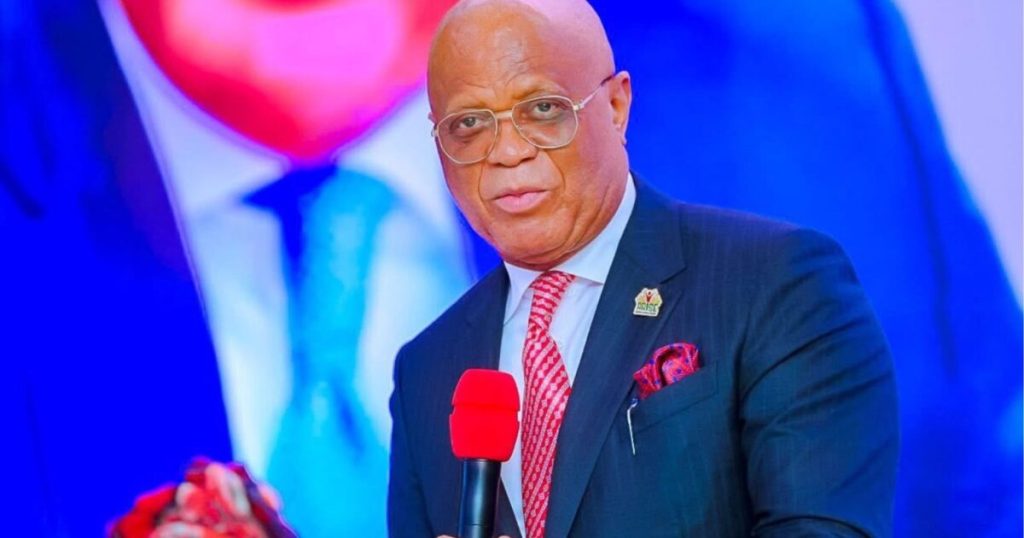Governor Umo Eno’s ultimatum to his cabinet members in Akwa Ibom State has sent ripples through the political landscape, highlighting the often-tumultuous nature of party politics and the complexities of loyalty within a governing body. Eno, who ascended to the governorship under the Peoples Democratic Party (PDP) banner, has declared his intention to defect to the All Progressives Congress (APC), demanding that his commissioners and political appointees follow suit or resign from their positions. This decisive move has ignited a debate about the balance between individual political freedom and the expectation of loyalty to a leader, particularly within the context of appointed positions. Eno’s declaration underscores the inherent tensions between personal political convictions and the pragmatic realities of maintaining a functioning government.
The governor’s rationale for his defection and the subsequent ultimatum hinges on his perceived lack of trust in the PDP’s ability to navigate the upcoming electoral process smoothly. He cites ongoing internal conflicts and administrative irregularities within the party as reasons for his departure, expressing concerns that these issues could jeopardize his chances of re-election, despite his confidence in his popularity and performance in the state. Eno argues that the national level disarray within the PDP poses a significant risk, even with the strong support he enjoys at the state level. This raises questions about the extent to which national party dynamics can influence local politics and the lengths to which individuals will go to secure their political futures.
Eno’s demand for unwavering loyalty from his appointees underscores the inherent power dynamics within a gubernatorial cabinet. While he acknowledges the freedom of his appointees to make their own political choices, he insists that those who choose not to align with his move to the APC cannot continue to serve in his administration. This highlights the inherent conflict between the principle of individual political autonomy and the practical reality of governing with a cohesive team. The governor’s stance essentially presents his appointees with a stark choice: loyalty or departure. This reinforces the often-unstated expectation that appointed officials prioritize allegiance to their appointing authority over their personal political affiliations.
The governor’s ultimatum also throws into sharp relief the delicate interplay between party loyalty and personal ambition in politics. Eno’s appointees are now faced with a complex decision: maintain their party affiliation and potentially jeopardize their current positions, or follow their leader into a new political landscape, potentially sacrificing their long-held political beliefs. This dilemma highlights the precarious nature of political appointments, which are often contingent on the shifting sands of party politics and personal relationships. The appointees must weigh their individual political aspirations against the immediate consequences of defying the governor’s directive.
This situation in Akwa Ibom state serves as a microcosm of the larger political landscape in Nigeria, where party defections and realignments are common occurrences. Often, these shifts are driven by calculations of political expediency and the pursuit of power, rather than ideological convictions. Eno’s move, and the ultimatum that followed, exemplifies this trend, raising questions about the stability of the party system and the influence of personal ambition on political decision-making. The ripple effects of Eno’s decision will likely extend beyond his immediate cabinet, potentially impacting the political landscape of the state and influencing the dynamics of future elections.
The long-term implications of Governor Eno’s ultimatum remain to be seen. It will be crucial to observe how his cabinet members respond to this directive and how the political landscape in Akwa Ibom State evolves in the coming months. The situation underscores the inherent tensions within a political system where personal loyalties, party affiliations, and the pursuit of power often intersect and collide. The reactions of the appointees and the broader electorate will offer valuable insights into the evolving dynamics of political power and loyalty in Nigeria. Ultimately, the events in Akwa Ibom will likely serve as a case study in the challenges of navigating the complexities of party politics and the delicate balance between individual agency and the demands of political leadership.


